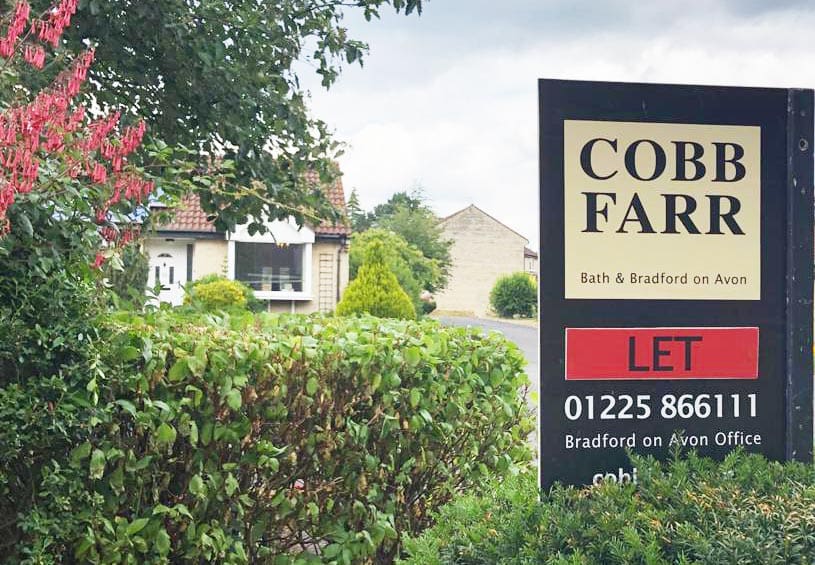Are you looking to buy or sell a property? Confused by all that jargon?
We’ve put together a home-buying glossary that covers everything you need to know (in alphabetical order) so everything will be much easier to understand.
Any time you come across a word you’re not sure about, refer to this list for all the UK house-buying terminology you need to know.
A is for…
- Agreement in principle (AiP)– A simple way to find out if you could borrow the amount you need to buy a house without a full credit check. It shows you’re a serious buyer, not a timewaster
- Arrangement fees– A fee charged by your mortgage lender to arrange your loan.
- Asking price– How much the property owner wants for their property.
- Auction– Where a property is sold to the highest bidder.
B is for…
- Balance Outstanding– how much of a loan is outstanding after a certain period of time
- Bridging Loan- A temporary loan to help you buy a property before yours has been sold
- Buildings Insurance– Insurance that protects you against the cost of repairing or rebuilding your home following damage by fire, thunder, or lightning.
- Building Survey– A thorough type of property survey.
- Buying Agent – These are hired by the buyer and help them find the property that best suits their needs then negotiate the best price and terms.
- Buy-to-let – When you buy a home and plan to let it to tenants.
C is for…
- Chain– Where the sale of one home depends on another, for example, one buyer selling their home before they can buy yours.
- Completion date– When the property legally changes hands from the seller to the buyer
- Contract– A legal agreement drafted by a solicitor or conveyancer that outlines the terms of sale between buyer and seller.
- Conditions of Sale– Any terms agreed by the buyer and seller.
- Contents Insurance– A type of insurance that protects what is inside your home such as possessions and furniture from accidental damage and theft.
- Conveyancing- The legal process of transferring one property to another, carried out by a solicitor or conveyancer.
- Conveyancer- An alternative to a solicitor, they are a person who can conduct the conveyancing.
- Covenant– A condition in the Title Deeds or Lease that the buyer must comply with. This usually applies to all future owners of the property.
D is for…
- Deeds– Legal documents that prove the legal ownership of a property or land.
- Deposit– A sum of money that is paid to the buyer to secure the property.
- Disbursements– These are fees such as Stamp Duty, Land Registry and search fees on top of the standard legal fees charged by a solicitor or conveyancer.
- Draft contract- This is an early version of the contract that can be checked and edited as required.
E is for…
- Early repayment charge– If you decide to pay off your mortgage earlier than the agreed repayment period, you could be charged either a percentage or fixed fee of the total loan.
- Energy Performance Certificate (EPC)– An EPC shows how energy efficient your property is.
- Equity– The difference between the value of your home and how much you owe on your mortgage.
- Estate agent- A person or business like Cobb Farr that arranges the selling, renting, buying or management of properties and other buildings.
- Exchange of contracts- When contracts are signed and the buyer and seller are legally bound to the sale. They cannot change their minds without legal repercussions.
F is for…
- First-time buyer- A potential house buyer who has never owned a home before.
- Fixed rate mortgage– Mortgage rates that are fixed for a set period of time.
- Fixtures & fittings– All non-structural items that are included in the sale of a property.
- Freehold property- Where both the building and land are owned outright.
- Full Structural Survey- A full structural survey looks at all the main features of the property including its walls, roof, foundations, plumbing, joinery, electrical wiring, drains and garden to identify any potential issues.
G is for…
- Gazumping- When you’ve had an offer accepted on a property you want to buy but the seller accepts a higher offer from another buyer.
- Gazundering- When a buyer lowers his offer just before the contracts are exchanged.
- Ground rent- An annual fee paid if you own a leasehold property.
- Guarantor- A person who is responsible for your mortgage payments if you are unable to pay.
H is for…
- Homebuyers’ Survey- Also known as (Level 2 RICS), this is a popular type of property survey that looks at the property and can include a valuation.
- Home Buyers’ Protection Insurance- This protects you in case the house purchase should fall through.
- Home Condition Survey– Another type of extensive property survey.
- House Price Index- The house price index looks at property prices in the UK.
- Housing Association- A non-profit body that allows you to buy a percentage of a home and pay rent on the rest.
I is for…
- Independent Financial Advisor (IFA)- This is an individual who can help you create a financial plan to help ensure you can afford the property and its repayments.
- Interest-only mortgage- When your monthly repayments only cover the interest, not the loan itself.
- Instruction- When a property owner instructs an estate agent to market their property.
J is for…
- Joint ownership- When more than one person owns a property.
- Joint mortgage- When there’s more than one name on the mortgage.
- Joint Agency- When two estate agents work together to market a property.
L is for…
- Land Certificate- This is a certificate that proves ownership of a property.
- Land Registry- A record of all registered properties in England and Wales.
- Leasehold – This is where you own the property but not the land on which it is built.
- Local Authority Search- An application made to a local authority to request details of planning or other matters that could affect the property being sold.
M is for…
- Mortgage- A long-term loan used to help buy a property.
- Mortgage deed- A legal document that acknowledges the Mortgage lender’s interest in a property.
- Mortgage offer- A formal written offer made by a bank or building society to lend an approved amount to purchase a property.
- Mortgage lender– The financial institution that can lend you the money to purchase a property.
- Mortgage valuation- This is a survey that assesses whether the home is worth what you are planning to pay for it.
N is for…
- Negative equity- When the value of the property is less than the amount owed on a mortgage.
O is for…
- Ownership of a property- The legal right to buy, sell or rent a property.
- Offer- A bid made by a buyer to purchase a property.
- Offers over- When offers are invited over the price shown.
P is for…
- Property- Your home, the property you’re wishing to buy or sell or another dwelling.
- Property sales- When a home is sold to a buyer.
- Purchasing a property- The act of buying a home or property.
- Private Treaty- How most house sales are completed in England and Wales.
R is for…
- Repayment Mortgage- A mortgage where the monthly repayments include the capital borrowed and the accrued interest.
- Repossession- When the mortgage payments haven’t been paid and the mortgage lender can sell the property to repay the debt.
- Retention- When the mortgage lender holds back part of the mortgage advance until specific repairs have been completed on the property.
S is for…
- Sale agreed- The seller has verbally agreed to the offer made.
- Sealed bids- Where potential buyers can submit their offer in a sealed envelope by a particular date. The highest bidder is usually the winner.
- Searches- Checks of local council records for planning applications, motorways, restrictions, and land charges.
- Solicitor- A legal expert who can handle all documentation for the sale and purchase of a property.
- Stamp Duty- A tax paid to the government when purchasing a property.
- Standard variable rate mortgage- A mortgage with interest rates that fluctuate
- Survey- A report on the condition of a property.
T is for…
- TA6 form- This is a form with questions for the seller to answer so the buyer can gain important information about the property.
- Tenure- Whether a property is freehold or leasehold.
- Tenants- People living at a property that is owned by someone else.
- Tender- When a seller invites written offers for a property that must be submitted before a closing date. the seller invites written offers for a property, which have to be received by a set closing date
- Title- A record of the ownership of a property.
- Transfer Deeds- The Land Registry document that transfers legal ownership of a property from seller to buyer.
U is for…
- Under offer- When the seller has accepted an offer, but contracts haven’t yet been exchanged.
V is for…
- Variable interest rate- An interest rate that fluctuates over time in line with general interest rates
- Vendor- Another name given to the seller of a property
- Verbal Offer- An offer given by a potential buyer that isn’t legally binding.
We help our clients cut through the jargon
Contact our friendly team today for personal service.


